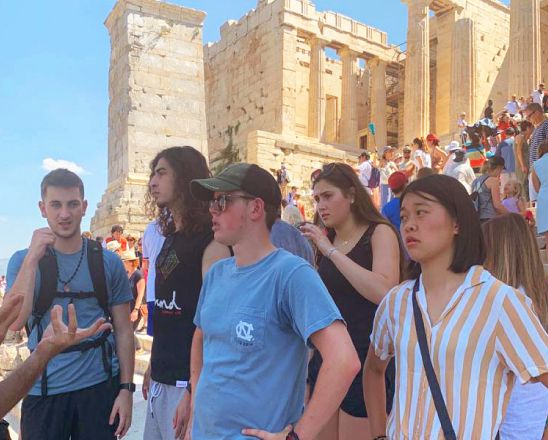
Plague, Politics & Populism | Classical Athens as Parable for Modern Greece and Europe (Athens, Delphi, Delos, Mykonos)
![]()
Drawing from ancient texts and modern scholarship, visits to archeological and cultural sites in Athens, Delphi and Delos, as well as private meetings with leading academics, business experts, NGOs, and government bodies, “Classical Athens as Parable for Modern Greece and Europe” course will explore how ancient and modern epidemics – specifically the Great Plague of Athens in 430 BC and COVID-19 Pandemic – expose the “fissures and fractures” that intensify and foment the economic and political consequences of their respective eras. In the case of fifth-century Athens, the plague ultimately cost the city-state a victory against Sparta, questioned the leadership of Pericles, and killed a third of the population amidst a climate rife with conspiracy theories, rising populism, and xenophobia. Events that seeded the decline of Athenian hegemony, and democracy. The comparison to similar patterns emerging today is inescapable, as is the expectation that COVID-19 will reshape history for decades to come. With profound economic and political uncertainty escalating, students will address contemporary challenges facing Greece and Europe, thrashed against the prism of Athenian antecedents.
During the first two weeks of “Classical Athens as Parable for Modern Greece and Europe”, students will consider the Great Plague’s impact on the political economy of Athens, from the accounts of Thucydides, Plato, Greek political thinkers and playwrights, as well as the scholarship of Bresson, Kelaidis, and Ober among others. During the second two weeks, these insights and arguments will be applied to analyzing how Greece continues battling COVID-19 against the backdrop of decades-long economic, political, and social crises. This will include examining (in non-technical terms) both the microeconomic impact on households, commerce, and governments, and macroeconomic impact on GDP, growth initiatives, and public policy. This framework will challenge students to synthesize all course resources, and advance their understanding of Greece and Europe’s role in the future of globalization.



